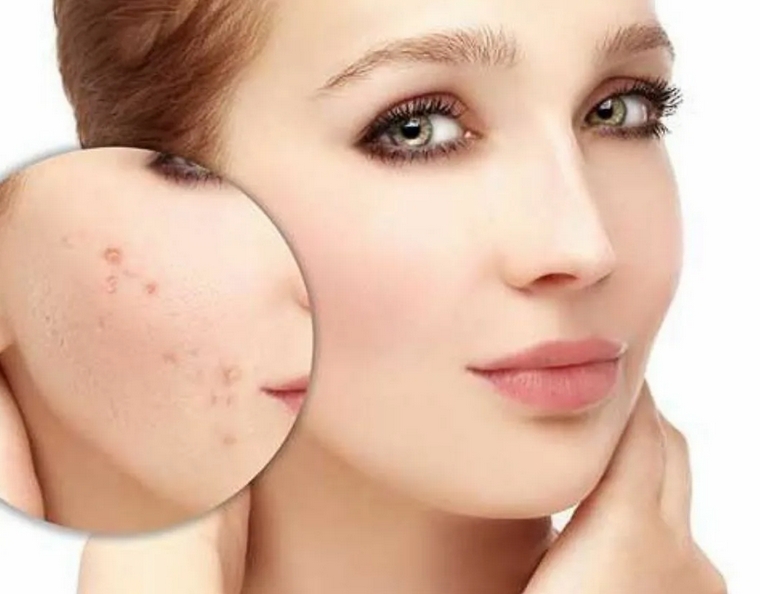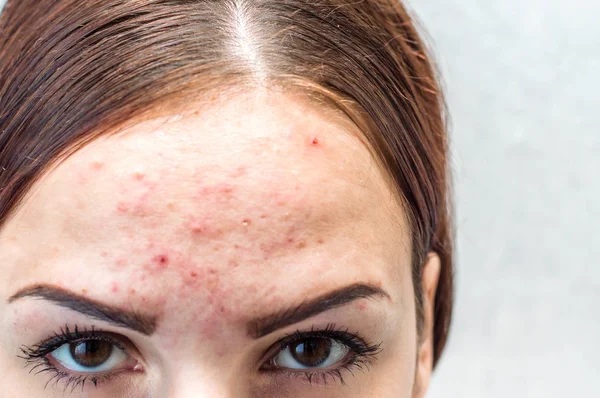What not to do with acne
Often, wanting to cope with the poor condition of the skin, we rush into all serious, trying all possible procedures and cosmetics, but often from such actions the problem is not only not solved, but also aggravated, and other phenomena are added to one unresolved condition.
This happens in patients with acne, in this chronic inflammatory disease from excessive production of sebum clogged the ducts of the sebaceous glands.
This should not be done for acne
Wash your face until it squeaks – aggressive cosmetics or soaps are cleansed to such a state, they bring down the pH of the skin and provoke rashes, which threatens a vicious circle from worsening the picture.

Squeeze acne – actions lead to the spread of infection throughout the face.
Carry out cleansing – this procedure injures the skin, increases inflammation and further expands the pores, with acne, cleaning is generally contraindicated.
Cauterize acne with alcohol – irritates the skin, increases its sensitivity, alcohol tonic will not help either, it will only dry out the skin, break the pH, complicate the problem.
Combine peeling and cleansing mask – these procedures are needed by the skin, but not on the same day, but with a break.
Mask imperfections – the problem is not solved with a layer of foundation, but is only corrected externally, while having a bad effect on the condition of the skin: if the product is comedogenic, acne will intensify.
Use scrubs, brushes (especially natural) – they will spread the contents of the pimple all over the face, provoke even more rashes, increase skin sensitivity.
Apply masks daily – fabric SOS masks will not give the desired result, and caregivers will lead to the loss of the skin of its own resources, so masks can be applied no more than twice a week.
Refer to antibiotic-containing agents – these are allowed only with medical prescription.
Self-prescribed acids, retinol, chemical peels, professional care – all this works effectively with acne, but to get the result, care must be selected by a qualified specialist taking into account your characteristics, lifestyle, season, and not on the advice of a friend, a sales assistant or relying on advertising.
Facial cleansing for acne and problem skin
Acne is an inflammatory disease of the sebaceous glands, resulting from their blockage and increased production of sebum. Only a person who has faced this problem face to face knows how difficult it is to fight this skin disease. And without the help of a competent cosmetologist, you can’t do it here.

Most often, the first step towards healthy and clear skin without acne is facial cleansing – a procedure that allows you to deeply clean the sebaceous glands and pores from impurities, and therefore from bacteria and microbes that provoke inflammation.
But the question arises – is it possible to clean with acne? Will it hurt? In this case, it is very important to entrust your face to a professional cosmetologist. Only a highly qualified specialist knows that not all acne and inflammation can be squeezed out.
For example, it is better not to touch acute purulent inflammations and subcutaneous acne – there is a risk of spreading the infection. Facial cleansing for problem skin must be performed correctly, observing all the rules of sterility and disinfection.
The effect of facial cleansing for problem skin
Facial cleansing for acne and problem skin gives amazing results. It allows you to deeply cleanse clogged pores, rid the skin of blackheads and comedones, prevent and remove acne and inflammation. Thanks to this procedure, the skin becomes smooth and clean, and the face begins to shine.
Contraindications
Contraindications to combined facial cleansing:
- high blood pressure
- second half of pregnancy
- herpes
- temperature
- acute purulent inflammation, skin diseases
- eczema
- serious diseases of the cardiovascular system (severe hypertension, post-infarction and post-stroke state)
oncological diseases (even the initial stage).
